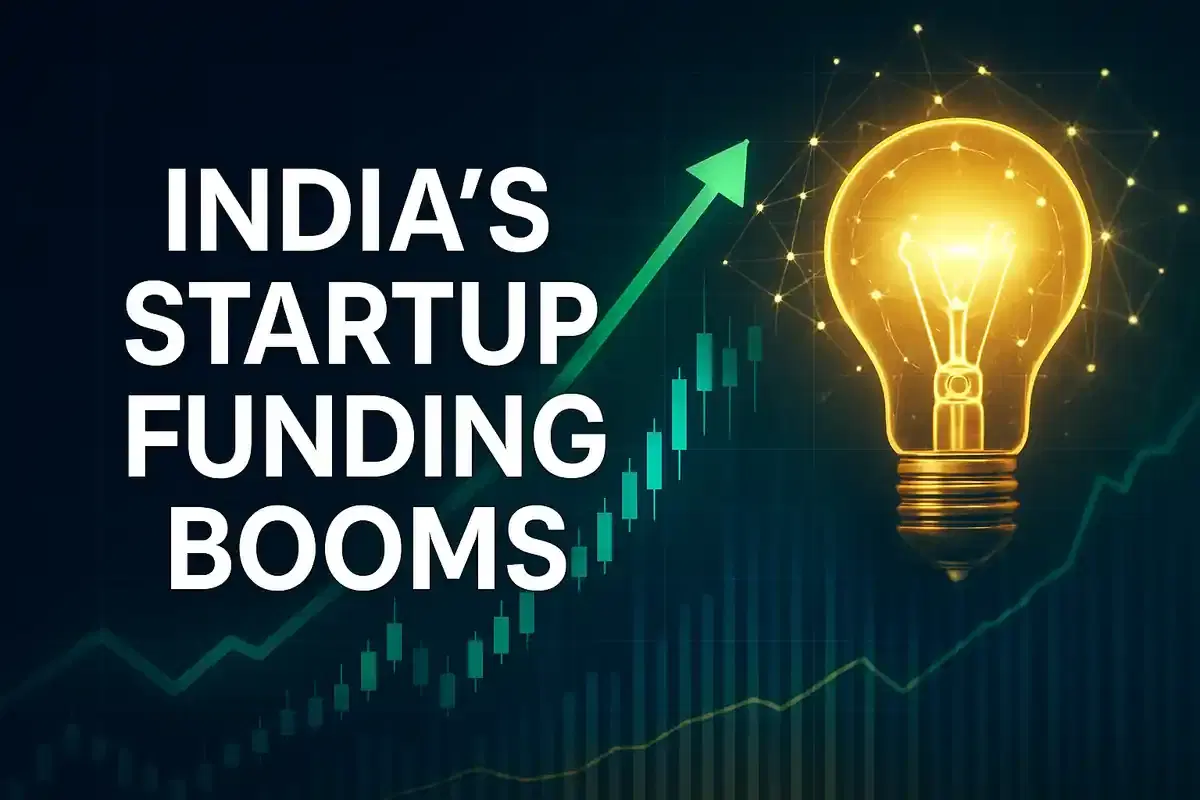India's Early-Stage Venture Funding Market Rebounds with Strong Growth in 2025
Startups/VC
|
29th October 2025, 2:31 PM

▶
Short Description :
Detailed Coverage :
India's early-stage venture funding market is experiencing a strong recovery after a prolonged slowdown. Data from Venture Intelligence shows that in 2025, pre-seed investment deal volumes surged by 52% year-on-year to 67, while the total investment value increased by 74% to $68.5 million, up from $39.3 million in 2024. This revival is attributed to renewed investor confidence, with founders increasingly building sustainable, revenue-focused startups. Key drivers include India's macroeconomic stability, characterized by strong GST collections and resilient consumption, alongside normalized valuations. The launch of new early-stage and seed-focused funds, exceeding $8 billion in the last year, has also injected significant capital. Investors are adopting a "patient capital" approach, making smaller, conviction-led investments. Founders, disciplined by the funding drought of 2022-23, are now prioritizing revenue visibility, unit economics, capital efficiency, and clear paths to profitability over rapid scaling. Innovation, particularly in AI and deep tech, is fueling new opportunities across sectors like AI-first SaaS, industrial automation, and climate applications. **Impact** This news significantly impacts the Indian startup ecosystem, fostering innovation and job creation, thereby contributing to overall economic growth. It also offers potential investment opportunities for venture capitalists and angel investors, with the possibility of attractive returns. **Impact Rating:** 8/10 **Difficult Terms:** **Venture Funding:** Investment made by venture capitalists or angel investors into startups and small businesses with perceived long-term growth potential. **Funding Winter:** A period when venture capital funding for startups significantly decreases, making it harder for companies to raise money. **Pre-seed Investment:** The earliest stage of funding, typically before a company has a fully developed product or revenue. **Deal Volume:** The total number of investment transactions. **Macroeconomic Stability:** A condition where a country's economy is characterized by low inflation, stable growth, and low unemployment. **Normalised Valuations:** When the prices of companies or assets return to more reasonable or historical levels after periods of inflation or speculation. **Unit Economics:** The revenue and costs directly associated with producing and selling a product or service. **Capital Efficiency:** The ability to generate revenue or profit with minimal capital expenditure. **Deep Tech:** Technology that is based on significant scientific or engineering advancements, often with long development cycles and high potential impact. **SaaS:** Software as a Service, a software distribution model where a third-party provider hosts applications and makes them available to customers over the Internet. **Patient Capital:** Investment made with a long-term perspective, where investors are willing to wait for returns without pressure for short-term gains. **Frontier-tech:** Advanced technologies that are emerging or on the cusp of commercialization, often pushing the boundaries of current capabilities.